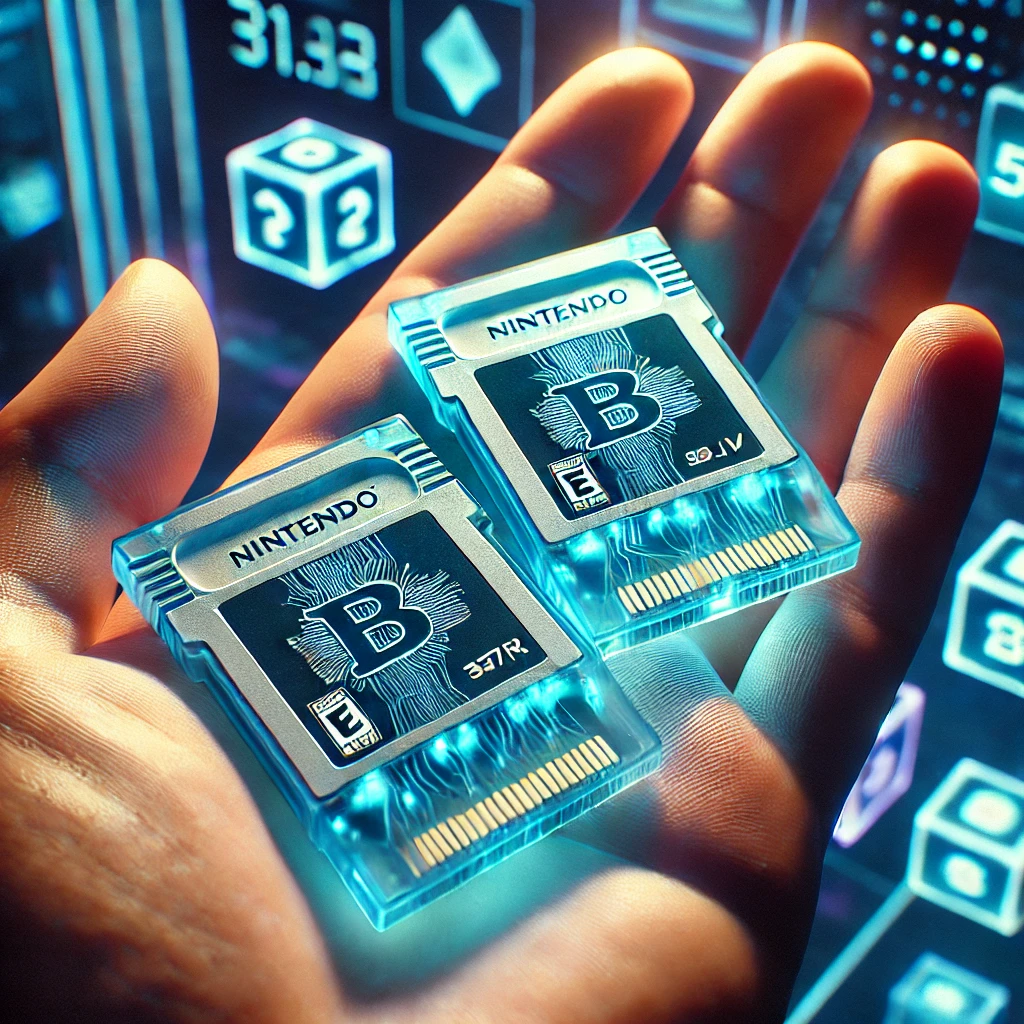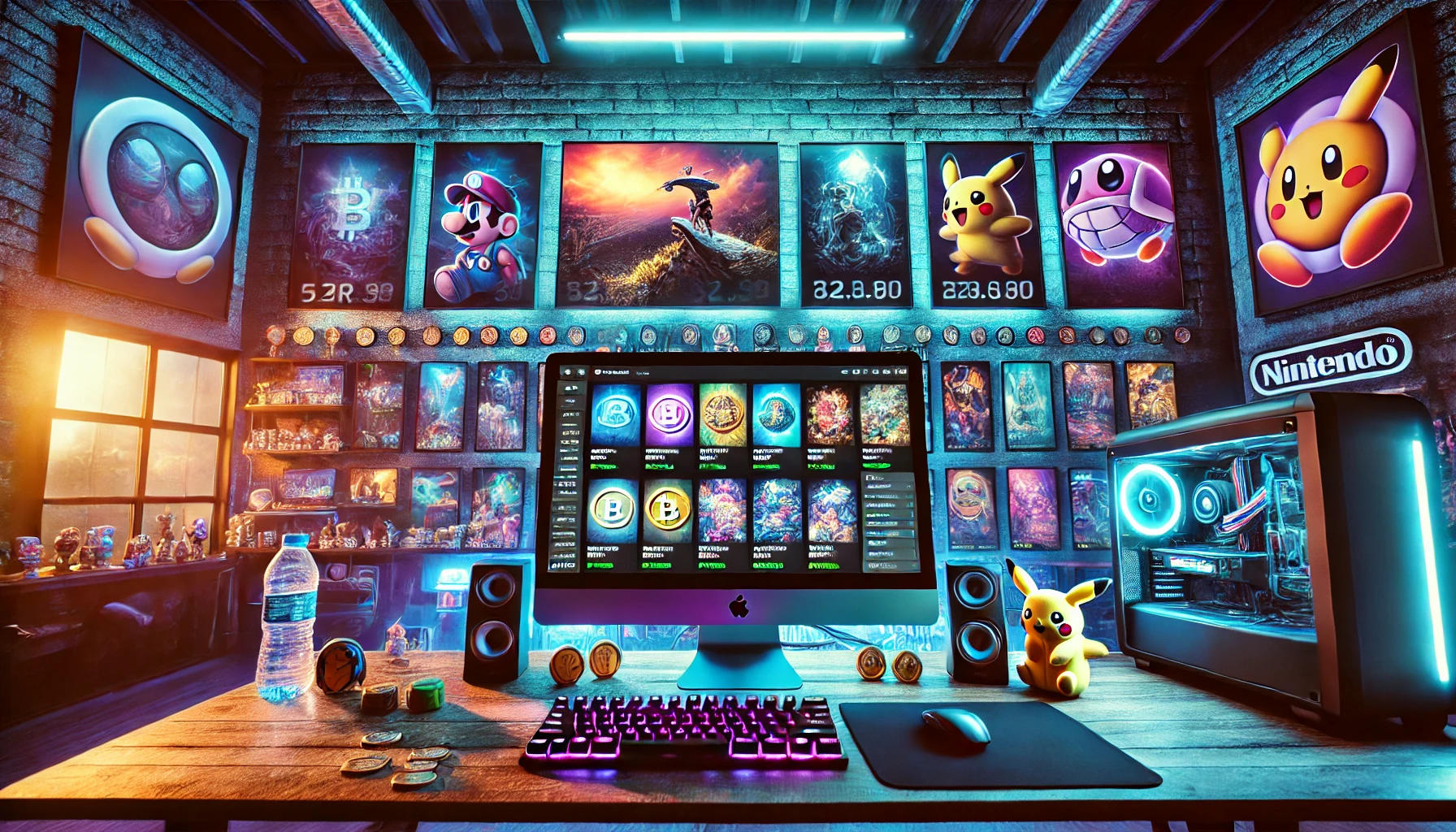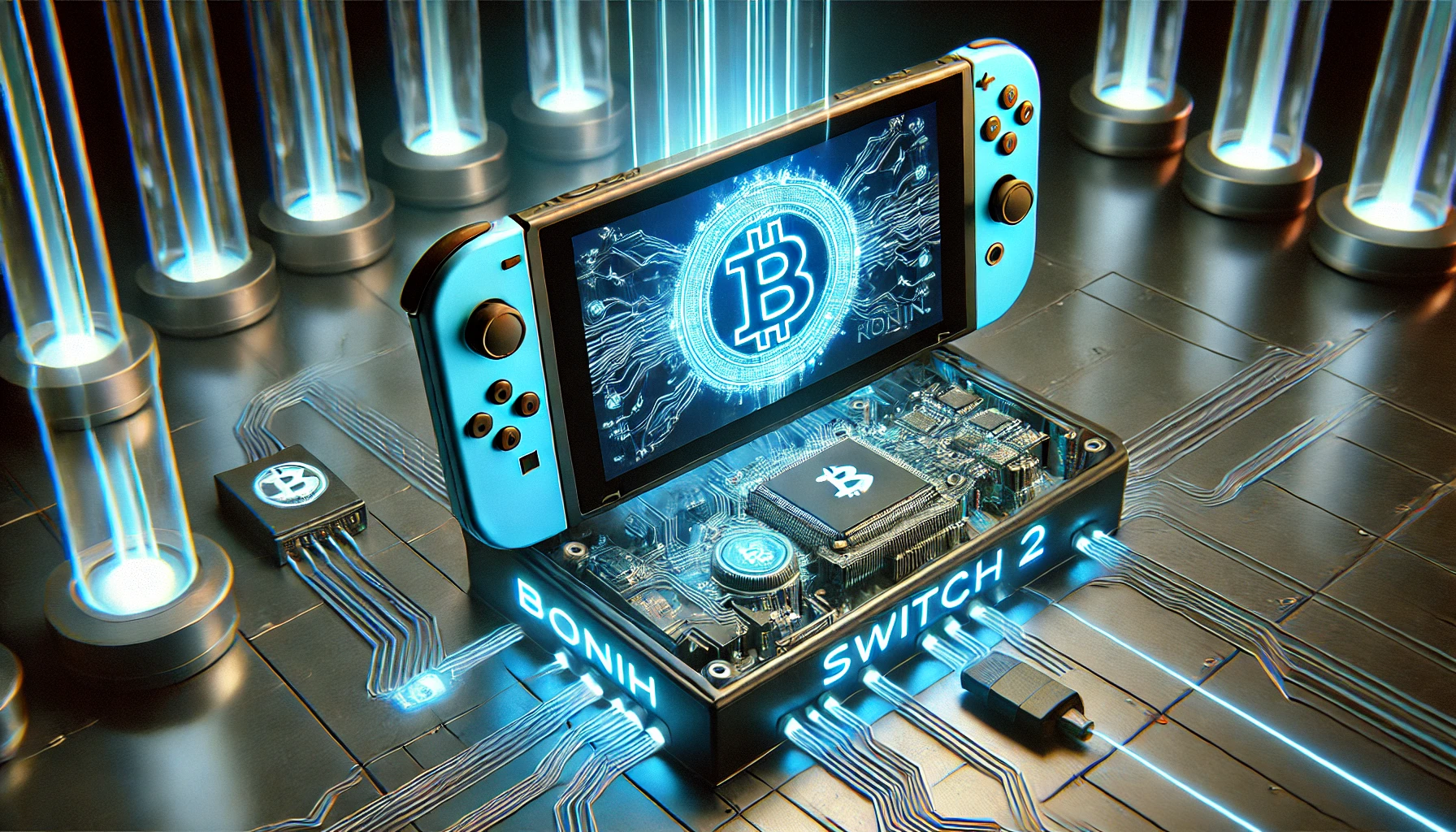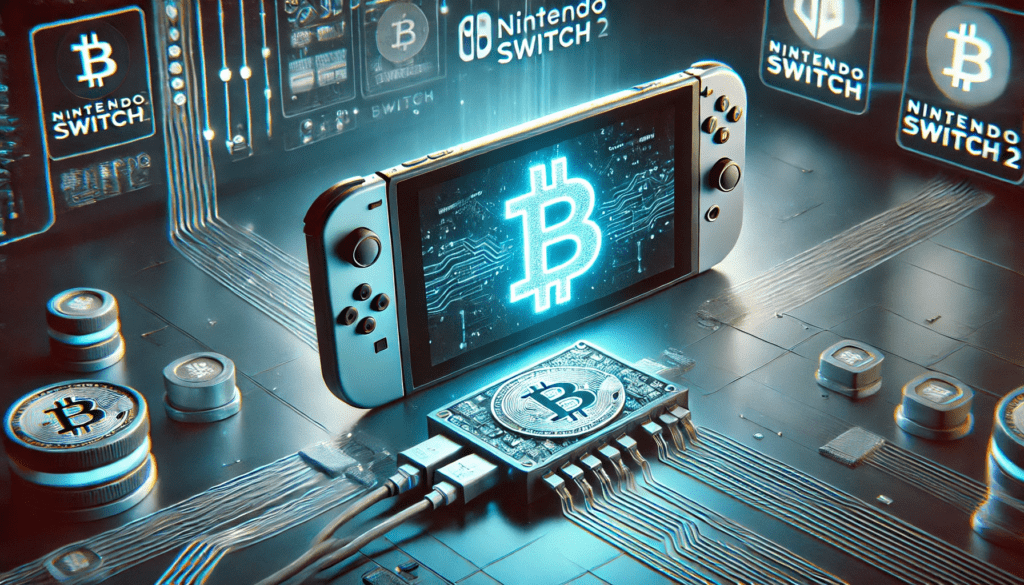Nintendo Switch 2 – What Could the Future Hold?
With rumors swirling about the Nintendo Switch 2, excitement is reaching a fever pitch. Fans are speculating about potential features like better graphics, improved performance, and new ways to interact with games. But what if Nintendo took an unexpected leap into blockchain technology?
While Nintendo hasn’t announced plans to integrate blockchain, it’s fun to imagine. What could happen if blockchain powers the future of game ownership, digital assets, and player interactions on the Nintendo Switch 2?
How Blockchain Could Revolutionize the Nintendo Switch 2
True Digital Game Ownership on the Blockchain
Imagine buying a game for the Nintendo Switch 2 that, instead of linking to your account or console, lives on the blockchain. Each game would come with a special token secured on the blockchain, proving ownership. Your games would no longer be mere files but also immutable assets you own independently from any platform.
- Permanent Ownership: If the game exists on the blockchain, you own it indefinitely. No risk of losing access due to system crashes, lost cartridges, or account issues.
- Transferable Games: You could sell or trade your digital games securely. The blockchain would track ownership changes, eliminating resale restrictions or concerns over unauthorized copies.


Blockchain-Backed Game Resale and Trading
Blockchain could solve one major problem: reselling digital games. While physical games have long enjoyed a resale market, digital purchases remain locked to accounts. With blockchain, Nintendo could enable secure secondary marketplaces where players trade games for tokens. The blockchain would verify each transaction, ensuring safe transfers between players.
- Official Resale Market: Players could resell their digital games in a blockchain-enabled marketplace, with Nintendo taking a cut, just like physical game sales.
- No Region Locking: Blockchain ties ownership to the token, not a region, allowing gamers worldwide to buy and sell games without regional restrictions.
Expanding the Nintendo Universe with Blockchain-Powered In-Game Assets
In-Game Assets as Tradable Blockchain Tokens
Blockchain could extend beyond game ownership. What if every in-game item, skin, or collectible became a token on the blockchain? Each asset would be uniquely owned, creating a player-driven economy within Nintendo’s ecosystem.
- Trade or Sell In-Game Assets: Players could trade rare items, weapons, or characters, turning digital collectibles into real assets.
- Cross-Game Functionality: Imagine using a sword earned in The Legend of Zelda in Super Smash Bros. Blockchain could enable cross-game functionality, giving digital assets value outside a single title.
Customizable, Player-Driven Content
Nintendo games thrive on community creativity, with games like Super Mario Maker and Animal Crossing relying on player input. Blockchain could take this further by allowing players to create and sell custom in-game content—levels, mods, or designs—as NFTs. A player-driven marketplace could reward creativity with real-world value.
- NFT Marketplace for Creators: Artists in the Nintendo community could mint NFTs based on in-game content, earning revenue by selling creations to other players.
- Ownership of Custom Content: Spend hours perfecting a Mario Kart track or Zelda dungeon? Sell that creation as a blockchain asset, monetizing your talent.

Challenges of Integrating Blockchain into the Nintendo Switch 2
Energy Consumption and Environmental Concerns
Blockchain, especially proof-of-work systems like Bitcoin, consumes significant energy. For eco-conscious Nintendo, this could be a barrier. Large-scale blockchain adoption would demand considerable computational power to handle game sales and in-game transactions.
- Sustainability Issues: Blockchain’s energy consumption could conflict with Nintendo’s eco-friendly image.
- Alternative Blockchains: More sustainable options, like proof-of-stake blockchains, could offer a solution. If Nintendo adopts blockchain, they would likely opt for a more environmentally friendly model.
Complexity for the Average Gamer
One of Nintendo’s strengths is its simplicity. Blockchain, however, can be complex, requiring players to manage digital wallets, private keys, and decentralized networks. This complexity might overwhelm casual users, particularly families and younger players.
- Usability Concerns: Many gamers may not be tech-savvy enough to manage blockchain assets like games or NFTs. Losing access to a private key could result in permanent loss of a game or item.
- User-Friendly Interface: To avoid deterring casual gamers, Nintendo would need to design a simplified interface that makes blockchain management seamless.
Increased Cost for Consumers and Developers
Incorporating blockchain into games could increase development costs, leading to more expensive games. Indie developers, who rely on simpler platforms, might also struggle to incorporate blockchain into their titles.
- Increased Game Prices: Blockchain infrastructure could raise game prices as developers invest in secure systems for managing digital assets.
- Barriers for Indie Developers: Indie studios might find it difficult to integrate blockchain due to the added complexity and costs, which could limit their participation.
How Blockchain Could Reshape Nintendo’s Gaming Ecosystem
Despite these challenges, blockchain could transform the entire Nintendo ecosystem.
Player-Driven Game Development and Content Creation
Blockchain could empower players to participate in game development by contributing custom levels, characters, or game modes. These creations could be stored as unique digital assets on the blockchain.
- Tokenized Content Creation: Players could submit their designs as NFTs, which, if approved by the community or developers, could be used in official game updates.
- Earn Revenue from Creations: Players could earn tokens for their contributions, creating a player-driven content economy where users shape the future of their favorite games.
Blockchain-Based Rewards and Loyalty Programs
Nintendo could develop blockchain tokens for rewards or loyalty programs. Players could earn tokens through achievements or events, redeemable for in-game content, exclusive merchandise, or discounts.
- Earnable Tokens: Achieve milestones or participate in events to earn tokens usable across multiple Nintendo games.
- Tradable Rewards: Unlike current reward systems, blockchain-based tokens could be traded or sold, adding value to in-game accomplishments.
Conclusion: Imagining a Blockchain-Powered Future for Nintendo
While this blockchain-powered future remains speculative, the potential to transform gaming is undeniable. If Nintendo integrates blockchain into the Switch 2, it could revolutionize how players own, trade, and interact with games. True ownership of digital games, decentralized economies, and cross-game assets are just a few possibilities. However, blockchain’s complexity and environmental impact could pose challenges for a company known for accessibility and simplicity. But if Nintendo explores this technology, the future of gaming could be more exciting than ever.


Prefer watching videos? Check out our YouTube channel where we turn our blogs into videos! Stay ahead in crypto gaming—subscribe now for exclusive content.
If you want more like this, read our related blog here!



